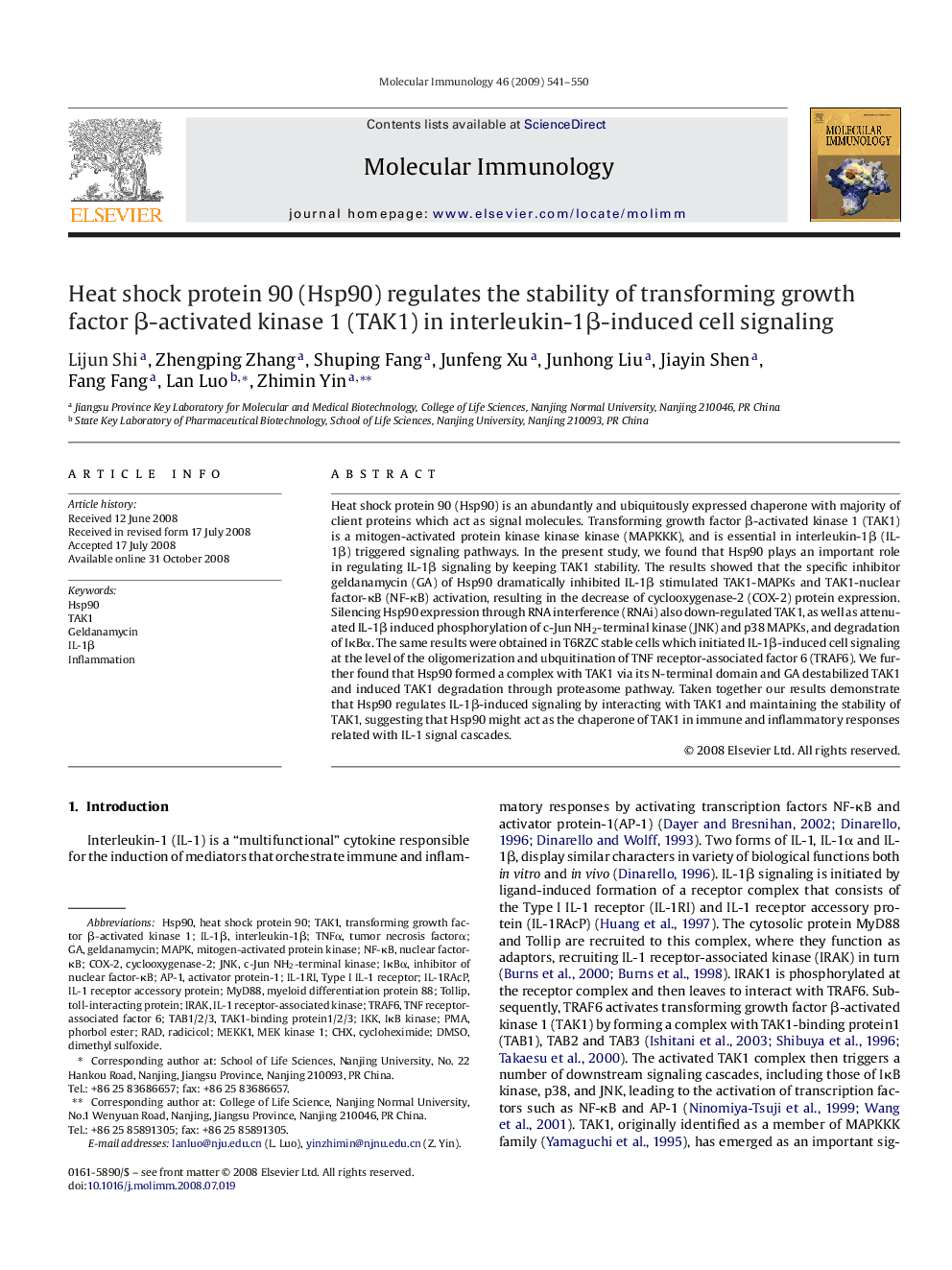| Article ID | Journal | Published Year | Pages | File Type |
|---|---|---|---|---|
| 2832327 | Molecular Immunology | 2009 | 10 Pages |
Heat shock protein 90 (Hsp90) is an abundantly and ubiquitously expressed chaperone with majority of client proteins which act as signal molecules. Transforming growth factor β-activated kinase 1 (TAK1) is a mitogen-activated protein kinase kinase kinase (MAPKKK), and is essential in interleukin-1β (IL-1β) triggered signaling pathways. In the present study, we found that Hsp90 plays an important role in regulating IL-1β signaling by keeping TAK1 stability. The results showed that the specific inhibitor geldanamycin (GA) of Hsp90 dramatically inhibited IL-1β stimulated TAK1-MAPKs and TAK1-nuclear factor-κB (NF-κB) activation, resulting in the decrease of cyclooxygenase-2 (COX-2) protein expression. Silencing Hsp90 expression through RNA interference (RNAi) also down-regulated TAK1, as well as attenuated IL-1β induced phosphorylation of c-Jun NH2-terminal kinase (JNK) and p38 MAPKs, and degradation of IκBα. The same results were obtained in T6RZC stable cells which initiated IL-1β-induced cell signaling at the level of the oligomerization and ubquitination of TNF receptor-associated factor 6 (TRAF6). We further found that Hsp90 formed a complex with TAK1 via its N-terminal domain and GA destabilized TAK1 and induced TAK1 degradation through proteasome pathway. Taken together our results demonstrate that Hsp90 regulates IL-1β-induced signaling by interacting with TAK1 and maintaining the stability of TAK1, suggesting that Hsp90 might act as the chaperone of TAK1 in immune and inflammatory responses related with IL-1 signal cascades.
